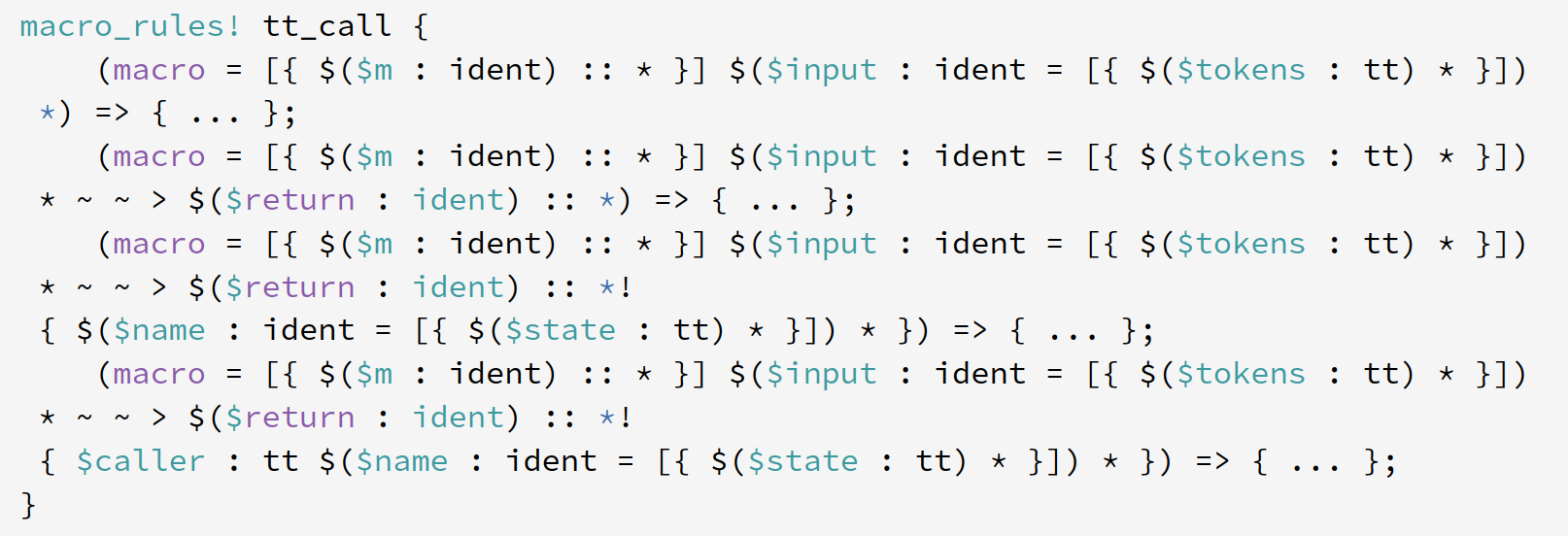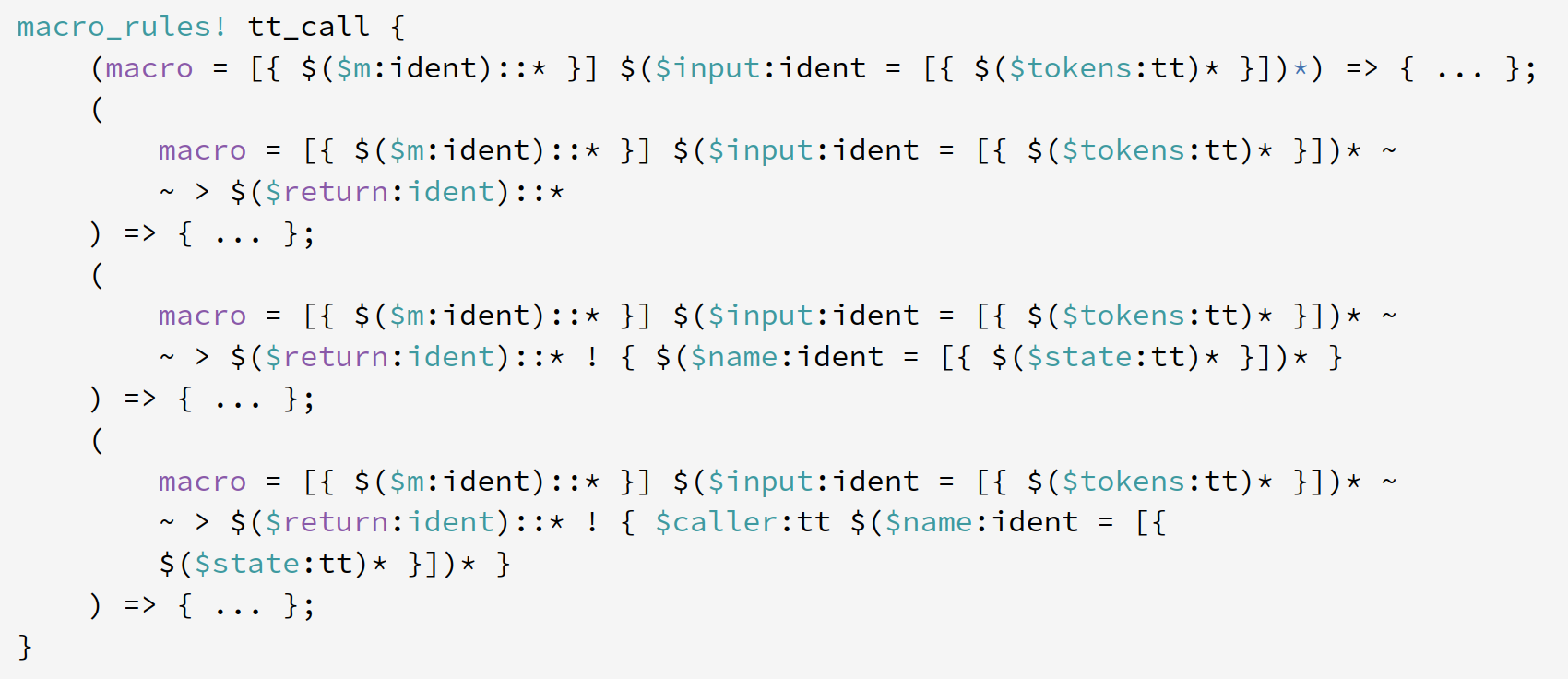Remove defaultness from ImplItem.
This information is not really used anywhere, except HIR pretty-printing. This makes ImplItem and TraitItem more similar.
Lazy type-alias-impl-trait
Previously opaque types were processed by
1. replacing all mentions of them with inference variables
2. memorizing these inference variables in a side-table
3. at the end of typeck, resolve the inference variables in the side table and use the resolved type as the hidden type of the opaque type
This worked okayish for `impl Trait` in return position, but required lots of roundabout type inference hacks and processing.
This PR instead stops this process of replacing opaque types with inference variables, and just keeps the opaque types around.
Whenever an opaque type `O` is compared with another type `T`, we make the comparison succeed and record `T` as the hidden type. If `O` is compared to `U` while there is a recorded hidden type for it, we grab the recorded type (`T`) and compare that against `U`. This makes implementing
* https://github.com/rust-lang/rfcs/pull/2515
much simpler (previous attempts on the inference based scheme were very prone to ICEs and general misbehaviour that was not explainable except by random implementation defined oddities).
r? `@nikomatsakis`
fixes#93411fixes#88236
by using an opaque type obligation to bubble up comparisons between opaque types and other types
Also uses proper obligation causes so that the body id works, because out of some reason nll uses body ids for logic instead of just diagnostics.
Render more readable macro matcher tokens in rustdoc
Follow-up to #92334.
This PR lifts some of the token rendering logic from https://github.com/dtolnay/prettyplease into rustdoc so that even the matchers for which a source code snippet is not available (because they are macro-generated, or any other reason) follow some baseline good assumptions about where the tokens in the macro matcher are appropriate to space.
The below screenshots show an example of the difference using one of the gnarliest macros I could find. Some things to notice:
- In the **before**, notice how a couple places break in between `$(....)`↵`*`, which is just about the worst possible place that it could break.
- In the **before**, the lines that wrapped are weirdly indented by 1 space of indentation relative to column 0. In the **after**, we use the typical way of block indenting in Rust syntax which is put the open/close delimiters on their own line and indent their contents by 4 spaces relative to the previous line (so 8 spaces relative to column 0, because the matcher itself is indented by 4 relative to the `macro_rules` header).
- In the **after**, macro_rules metavariables like `$tokens:tt` are kept together, which is how just about everybody writing Rust today writes them.
## Before

## After

r? `@camelid`
Store a `Symbol` instead of an `Ident` in `AssocItem`
This is the same idea as #92533, but for `AssocItem` instead
of `VariantDef`/`FieldDef`.
With this change, we no longer have any uses of
`#[stable_hasher(project(...))]`
Rustdoc: remove ListAttributesIter and use impl Iterator instead
This is a continuation of https://github.com/rust-lang/rust/pull/92227.
I found that `ListAttributesIter` did not optimize well and replacing it with a simple `impl Iterator` resulted in 1-3 % instruction count wins locally.
Because I needed to use `impl Iterator` on a slice of AST attributes, I had to implement it using GAT + impl trait. I also have a version without GAT [here](5470e2a65c), if GATs are not welcome in rustdoc :D Locally it resulted in equal performance numbers.
Can I ask for a perf. run? Thanks.
r? rust-lang/rustdoc
Fix inconsistency of local blanket impls
When a blanket impl is local, go through HIR instead of middle. This fixes inconsistencies with data detected during JSON generation.
Expected this change to take longer. I also tried doing the whole item through existing clean architecture, but it didn't work out trivially, and felt like it would have added more complexity than it removed.
Properly fixes#83718
Fix star handling in block doc comments
Fixes#92872.
Some extra explanation about this PR and why https://github.com/rust-lang/rust/pull/92357 created this regression: when we merge doc comment kinds for example in:
```rust
/// he
/**
* hello
*/
#[doc = "boom"]
```
We don't want to remove the empty lines between them. However, to correctly compute the "horizontal trim", we still need it, so instead, I put back a part of the "vertical trim" directly in the "horizontal trim" computation so it doesn't impact the output buffer but allows us to correctly handle the stars.
r? ``@camelid``
This is the same idea as #92533, but for `AssocItem` instead
of `VariantDef`/`FieldDef`.
With this change, we no longer have any uses of
`#[stable_hasher(project(...))]`
Replace use of `ty()` on term and use it in more places. This will allow more flexibility in the
future, but slightly worried it allows items which are consts which only accept types.
ProjectionPredicate should be able to handle both associated types and consts so this adds the
first step of that. It mainly just pipes types all the way down, not entirely sure how to handle
consts, but hopefully that'll come with time.
rustdoc: Preserve rendering of macro_rules matchers when possible
Fixes#92331. This approach restores the behavior prior to #86282 **if** the matcher token held by the compiler **and** the matcher token found in the source code are identical TokenTrees. Thus #86208 remains fixed, but without regressing formatting for the vast majority of macros which are not macro-generated.
The field is also renamed from `ident` to `name. In most cases,
we don't actually need the `Span`. A new `ident` method is added
to `VariantDef` and `FieldDef`, which constructs the full `Ident`
using `tcx.def_ident_span()`. This method is used in the cases
where we actually need an `Ident`.
This makes incremental compilation properly track changes
to the `Span`, without all of the invalidations caused by storing
a `Span` directly via an `Ident`.
rustdoc: Remove the intra-doc links side channel
The side channel made the code much more complex and harder to
understand. It was added as a temporary workaround in
0c99d806ea, but it's no longer necessary.
The addition of `UrlFragment` in #92088 was the key to getting rid of
the side channel. The semantic information (rather than the strings that
used to be used for fragments) that is now captured by `UrlFragment` is
enough to obviate the side channel. An additional change had to be made
to `UrlFragment` in this PR to make this possible: it now records
`DefId`s rather than item names.
This PR also consolidates the checks for anchor conflicts into one place.
r? `@Manishearth`
rustdoc: Introduce a resolver cache for sharing data between early doc link resolution and later passes
The refactoring parts of https://github.com/rust-lang/rust/pull/88679, shouldn't cause any slowdowns.
r? `@jyn514`
rustdoc: Remove apparently unnecessary conditional in `doc_value`
I need to remove this conditional for #91072, but while it seems
unnecessary, we are not certain. So, the plan is to first remove the
conditional and see if any regressions pop up before doing the refactor.
This way, it will be easier to revert if there are subtle regressions.
r? `@jyn514`